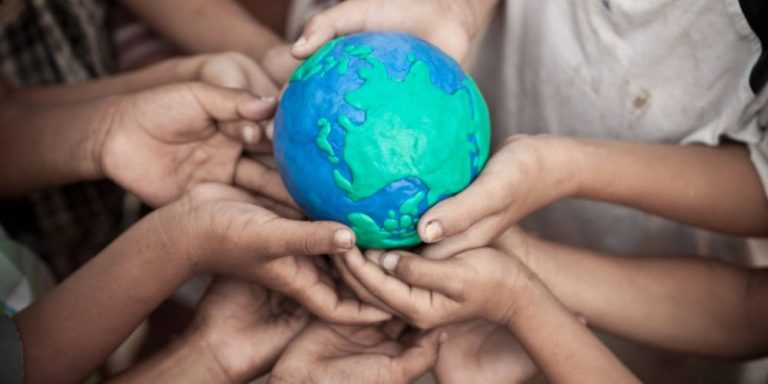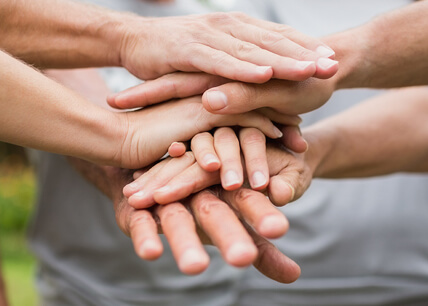
Human beings live in a collective society therefore, societal goals are the objectives of a society, community, or nation.
Muhammad Taha Farhan
Society is a general term referring to the groups of people and the environment in which we live. Contributions are the concept of the harvest of our participation that benefits people in a concerned way. This article will explore the ranks of social contribution and how it is a collective process. It deconstructs the prevailing misconceptions about the notion of contribution in dominant culture.
Everyone has a different mindset, and their thoughts vary from person to person. It starts when one learns a new thing. It gives him confidence and the ability to perform well. We learn a new thing every day, but we don’t think about the upsides. Each success is a contribution to society. If an industry makes a helpful product and provides facilities to its employees, it is playing a good role in making society better. We all can participate by performing our jobs with dedication and providing services. Teachers contribute by teaching skills and imparting knowledge to the next generation.
Good relationships with our family can contribute to a supportive society. A change in the environment and politics can have a huge impact on society’s progress. Scientific research makes us understand new discoveries and leads to innovation that benefits society. Philanthropic organizations can have a direct and lasting effect on various social issues. Planting a tree is the best contribution because it provides us with necessary oxygen, helps reduce pollution, and provides materials that help in the manufacturing of medicines. Supporting sustainability is a matter of well-being for generations.
Should we step back when it is difficult?
Everyone faces difficulties in challenging times, but standing bravely makes a soldier who performs his obligation in every situation. In the earlier times, people were used to practical proofs. For instance, Thomas Edison worked on this project and failed numerous times. His persistence efforts with failures led him to invent an electric bulb. He played a crucial role in modern scientific inventions. As for the books we read, these are printed somewhere. In the 15th century, the letter printing press was invented by German inventor Johannes Gutenberg. Before his time, education was a privilege for only those who could afford. But his scientific contribution made an educational revolution in the world.
Are societal goals also important?
So far, we have highlighted individual contributions, but this makes contribution restricted to certain heroic and extraordinary figures. Human beings live in a collective society therefore, societal goals are the objectives of a society, community, or nation that it aims to achieve in order to improve its wellbeing. These goals can vary depending on the values and priorities of the nation. It can only be possible when people have a clear vision of their goals and unity among them. For example, before Pakistan got independent, the societal goals of all the communities were to get an independent state where there was no discrimination between any community and they could practice their religion. There is a contribution of Muslims of the subcontinent and the leaders who played a crucial role in the independence movement of Pakistan. All these men and women contributed collectively to give us today this land what we call our own.
Do all people contribute?
Everyone has a different mind-set, and not everyone contributes sincerely and in the same way. We do corruption in our responsibilities somewhat. Not many work for contribution; many do it for economic reasons. Contribution and profession are independent in the sense that one’s contribution is defined by his profession. While some professions provide platforms for making contributions, it depends on personal interest. The profession has ethical and moral considerations, but it doesn’t automatically determine the individual’s positive contributions or their values. For instance, a person starts a career as an engineer may transition into a military officer or retire, but he is continuing to make contributions in various ways.
 Societal contribution can be influenced by a variety of factors, such as Knowledge, skills, and expertise enable us to contribute to healthcare, education, and technology. Access to resources like time and materials can facilitate contributions. Opportunity to volunteer, donate, and start initiatives are important factors that encourage people to participate, respectively. Selfless contributions are made without personal gain. They are genuinely made to help others or to make the world a better place. Selflessness often includes acts of kindness, philanthropy, volunteering, and sacrificing one’s time, resources, or skills for the benefit of others or a cause. These contributions can be powerful because they are motivated by empathy and a sense of social responsibility.
Societal contribution can be influenced by a variety of factors, such as Knowledge, skills, and expertise enable us to contribute to healthcare, education, and technology. Access to resources like time and materials can facilitate contributions. Opportunity to volunteer, donate, and start initiatives are important factors that encourage people to participate, respectively. Selfless contributions are made without personal gain. They are genuinely made to help others or to make the world a better place. Selflessness often includes acts of kindness, philanthropy, volunteering, and sacrificing one’s time, resources, or skills for the benefit of others or a cause. These contributions can be powerful because they are motivated by empathy and a sense of social responsibility.
One example of a contributing success in history is that of Dr. Jonas Salk, an American medical researcher and virologist. His collaboration with scientists and research for years culminated in the successful development of the inactivated polio vaccine, known as the Salk vaccine. It was first tested in a massive field of nearly two million children in 1954. It was proven safe and effective and resulted in preventing polio. His selfless contribution is ensuring that the vaccine can be produced and distributed widely. This contributed immensely to global public health care by reducing the incidence of polio and its devastating consequences.
Hence, it all boils down to the fact that each of us has the potential to become social contributors in our own unique way based on our worldviews, experiences, capacities, and orientations. Yet it is important that the value and individual duty of contributing to society be included as a vital part of our schooling. Currently, Pakistani culture has been developed in a way that we are only raised to expect from society. Be it money, fame, respect, or privileges, at all times, the common Pakistani mind-set looks to society with an intention to take something from it. Unless public awareness and education for a serious shift in this mind-set gain recognition, our society’s progress may remain halted. A hope is redefining philanthropy and the concept of contribution, which unfortunately has been burdened upon humanitarian institutions and the government.
A redefining of this concept requires voice, effort, and platforms to bring attention to this deficiency in our cultural fabric, a patch that we need to mend. Ultimately, we contribute to society by making it better through our acts in our daily lives, homes, friend circles, neighborhoods, and professional environments. We need no longer to think of contribution as an institution but as an open office for everyone, of every age and every background. Collectively, it shapes Pakistan’s and the world’s future and determines its direction. Only by becoming conscious of our capacity to contribute in our respective roles can we hope for nation-building and a better world.
_________________
 Muhammad Taha Farhan is a high-school student who has recently completed his diploma from PACC—Pakistan American Cultural Centre, Hyderabad in English Language Program and was the best essayist. Taha engages himself in his love for Creative Writing and Performing Arts. His interests are contemporary technologies, economics and science. He can be accessed at: tahafarhan003@gmail.com.
Muhammad Taha Farhan is a high-school student who has recently completed his diploma from PACC—Pakistan American Cultural Centre, Hyderabad in English Language Program and was the best essayist. Taha engages himself in his love for Creative Writing and Performing Arts. His interests are contemporary technologies, economics and science. He can be accessed at: tahafarhan003@gmail.com.